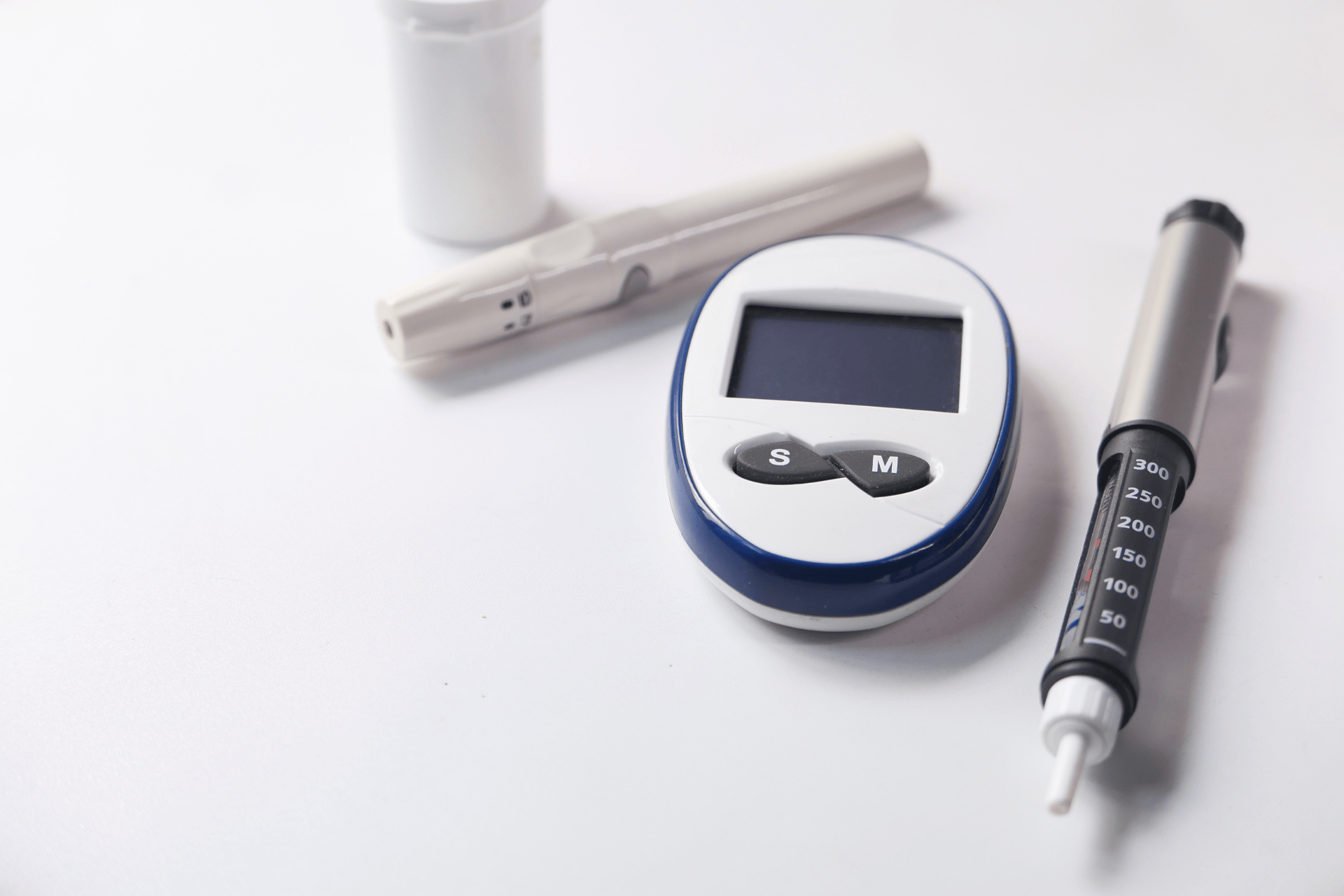Zepbound and Depression - What to Watch For
Zepbound’s Mechanism of Action and Its Impact on Patient Well-BeingZepbound's mechanism of action is particularly noteworthy, as it mimics the effects of certain [...]
Read More
Medically reviewed by Alan Lucks | MD, Alan Lucks MDPC Private Practice - New York on November 24th, 2025.
Clinical trials of tirzepatide (Zepbound) show no direct causal link to depression, with mood disorders occurring at similar rates to placebo groups during testing.
Rapid weight loss can trigger emotional challenges as patients adjust to changing body image, social dynamics, and long-held eating patterns that previously provided comfort.
Gastrointestinal side effects like persistent nausea and vomiting may indirectly affect mood by disrupting sleep, reducing nutrient absorption, and limiting social eating activities.
Warning signs requiring immediate medical attention include persistent sadness lasting more than 2 weeks, loss of interest in previously enjoyed activities, or any thoughts of self-harm.
Regular physical activity becomes especially important during treatment, as even 20-30 minutes of daily movement can boost endorphin production and counteract potential mood dips.
Zepbound's mechanism of action is particularly noteworthy, as it mimics the effects of certain hormones that play a crucial role in regulating appetite and glucose metabolism. Activating receptors in the brain that signal fullness helps reduce cravings and promotes a sense of satiety, which can be a game-changer for individuals struggling with obesity. The dual benefits of weight loss and metabolic improvement make Zepbound a compelling option for many patients seeking comprehensive health improvements.
It's also important to recognize that while Zepbound can significantly aid in weight loss, the psychological aspects of eating and body image can be complex. Patients may experience a range of emotions as they undergo treatment, from excitement about their progress to anxiety about potential side effects or the fear of regaining weight. Engaging in regular discussions with healthcare providers about these feelings can help ensure a holistic approach to treatment. Support groups or counseling can provide additional layers of support, fostering a sense of community and shared experience among those on similar journeys.
 Understanding Zepbound: What It Does and How It Works
Understanding Zepbound: What It Does and How It WorksZepbound, also known by its generic name tirzepatide, is an FDA-approved medication designed to help adults with obesity or overweight manage their weight. It also benefits those with moderate to severe obstructive sleep apnea (OSA) related to obesity. Unlike traditional sleep medications, Zepbound works by activating two hormone pathways, GIP and GLP-1 receptors that regulate appetite, digestion, and insulin release. This dual-action mechanism sets Zepbound apart from other weight management treatments, making it a promising option for individuals struggling with obesity-related health issues.
By reducing hunger and slowing stomach emptying, Zepbound helps patients feel fuller longer and eat less. This leads to significant and sustained weight loss, which in turn can reduce fat deposits around the airway. That reduction helps decrease airway collapse during sleep, improving OSA symptoms. The medication is administered as a once-weekly injection, and consistent dosing is critical to maintaining its effectiveness. Clinical studies have shown that patients using Zepbound not only achieve weight loss but also experience improvements in metabolic markers, such as lower blood sugar levels and better cholesterol profiles, which are essential for reducing the risk of cardiovascular disease.
In addition to its physiological benefits, Zepbound is often accompanied by lifestyle modifications, including dietary changes and increased physical activity, to enhance weight loss outcomes. Healthcare providers typically recommend a comprehensive approach that incorporates behavioral therapy and nutritional counseling alongside the medication. This holistic strategy not only maximizes the effectiveness of Zepbound but also empowers patients to develop healthier habits that can lead to lasting change. As a result, many users report not only a decrease in weight but also a boost in overall well-being, self-esteem, and quality of life, making Zepbound a multifaceted tool in the fight against obesity.
Zepbound’s most common side effects include nausea, reduced appetite, diarrhea, constipation, and abdominal discomfort. Depression is not listed as a direct side effect in clinical trials or FDA documentation. However, any medication that affects metabolism and appetite may indirectly influence mood and mental health. Patients should be alert to any new or worsening symptoms of depression while on Zepbound.
Weight loss journeys can be emotionally complex. Rapid changes in body image, appetite, and energy levels may impact mental well-being. If a patient experiences gastrointestinal side effects like nausea or discomfort, this can contribute to feelings of irritability or low mood. It’s important to communicate openly with your healthcare provider about any mood changes during treatment.
If feelings of sadness, hopelessness, anxiety, or other signs of depression persist or worsen, it’s crucial to seek professional help promptly. Telehealth platforms such as Doctronic.ai provide 24/7 access to licensed doctors who can evaluate symptoms, offer guidance, and adjust treatment plans as needed. Early intervention can prevent more serious mental health complications.
Zepbound is most effective when combined with healthy eating habits, regular physical activity, and ongoing medical supervision. These lifestyle changes not only enhance weight loss but also support mental health. Balanced nutrition and exercise release endorphins, improve sleep quality, and reduce stress, all of which can help mitigate depression risks.
Regular check-ins with healthcare providers ensure that any side effects, including mood changes, are identified early. Providers can tailor treatment, suggest counseling or therapy if needed, and coordinate care for both physical and mental health. For those seeking convenient access to medical advice, telehealth services like Doctronic.ai offer affordable video visits with doctors in all 50 states, anytime.
Persistent sadness or low mood
Loss of interest in activities once enjoyed
Changes in sleep patterns or appetite unrelated to medication side effects
Feelings of hopelessness or worthlessness
Difficulty concentrating or making decisions
Thoughts of self-harm or suicide
Don’t hesitate to report any of these symptoms during your appointments or telehealth visits. Open communication helps your doctor provide the best care and adjust your treatment plan if needed. Remember, mental health is just as important as physical health in your weight management journey.
Doctronic.ai offers telehealth visits with licensed doctors for under $40, available 24/7 across all 50 states. This makes it easy to get timely medical advice without the hassle of scheduling in-person appointments or waiting in urgent care lines.
Doctronic is not just any telehealth service. It’s powered by advanced AI that synthesizes the latest peer-reviewed medical research to provide fast, accurate answers tailored to your health history. The AI remembers your name and every visit, offering a personalized experience that traditional healthcare often lacks.
 Zepbound and Mental Health
Zepbound and Mental HealthZepbound offers a promising option for adults struggling with obesity and related conditions like obstructive sleep apnea. While it does not directly cause depression, patients should remain vigilant about their mental health throughout treatment. Combining medication with lifestyle changes and regular medical follow-up is key to success.
Telehealth services like Doctronic.ai make it easier than ever to access expert care, monitor side effects, and get support whenever needed. Your health journey is personal, and having a reliable, smart, and patient healthcare partner can make all the difference.
There is no direct evidence that Zepbound causes depression. However, mood changes can occur indirectly due to side effects or the emotional impact of weight loss. Monitoring your mental health is important.
Any new or worsening symptoms of depression should be reported as soon as possible. Early intervention can improve outcomes and help adjust your treatment plan.
Yes. Telehealth services like Doctronic.ai provide quick, affordable access to doctors who can evaluate side effects and offer guidance without needing an in-person visit.
Healthy eating, regular physical activity, and stress management are key. These changes support weight loss, improve mental health, and enhance medication effectiveness.
Yes, by promoting weight loss, Zepbound can reduce fat deposits around the airway, decreasing airway collapse during sleep and improving obstructive sleep apnea symptoms.
While Zepbound doesn't directly cause depression, the weight loss journey itself can trigger emotional challenges that require monitoring and support. Stay alert for mood changes lasting more than two weeks and maintain open communication with your healthcare team. If you're experiencing concerning symptoms during treatment, Doctronic can help you evaluate whether they're related to your medication or require additional intervention.
Zepbound’s Mechanism of Action and Its Impact on Patient Well-BeingZepbound's mechanism of action is particularly noteworthy, as it mimics the effects of certain [...]
Read More